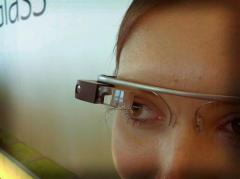Tagged: tech
Online Communites. Online Friendships. Online Church.
I’ve sat down to write this post several times now. Each time it’s been slightly different, with a slightly different focus, but ultimately the same thing has happened – I couldn’t finish it.
Even now, as I’m sat in my comfy desk chair in the dead of night unable to sleep, I’m thinking that there’s no point in continuing to write this.
But at the same time, I want to want to write it.
It’s been some time since I last blogged, so this going to need some back-story.
Just before Christmas I was loving social media. Really enjoying it, I had a lot of conversations going, Twitter was always a source of friendship, information and fun. I was blogging regularly, I had plans to keep blogging, and I was enjoying myself doing it.
Then it got to Christmas time. I went home from university, saw relatives, went away and generally was away from the Internet; away from the online community I’d recently enjoyed being a part of.
When I came back I found that it was hard to get tweeting again. It was like I’d broken a habit, and I couldn’t get back into it. So I thought I would blog about it, maybe explore what my month of near Twitter-silence had done to my relationships, both online and offline.
That was the first time that I sat down to write this blog post. I’d found that being offline hadn’t drastically enriched my offline relationships, as I wasn’t always online, but my online relationships – that sense of community online – had suffered drastically.
I felt a stranger to my fellow Tweeters.
This is where I realised a big difference in online and offline communities.
Offline, people notice when you leave. If you go away or don’t show up to work or uni for a month – people would notice! As Christians we know that churches strive to notice when people aren’t turning up anymore, so that we can find out why.
Online, it doesn’t happen like that. The drop-in nature of social media means that it’s hard to keep track of people. Whereas you might get a call from a friend asking where you’ve been recently offline, online you’re unlikely to be dropped a tweet from someone who hasn’t seen you tweet in a while.
I really don’t like this.

I get that the web is impersonal and the rest of it, I’ve blogged on it enough. What I don’t like is the way that the impersonal nature of the web can come across as uncaring.
As a Christian, I like to think that a collection of Christians together makes a church. So therefore, at least in my mind, the large group of Christians who interact regularly online are a kind of Twitter-church, right?
If we acted in this online church like we did in our physical churches each Sunday then we would have so many friends! In church we greet each new person with enthusiasm and warmth, and strive to make them feel as though they are welcome and are of worth in the community. If we found some way to do this online, wouldn’t it just be awesome? And on the plus side, we have that drop-in nature, and the 24/7-ness of the web on our side! It would be like being surrounded by your church family whenever you need to be.
I have no idea if anything like this is logistically possible, but I hope that we can find a way to make Twitter a huge, caring and warm church.
Reading back through this now I realise that it incredibly poorly written and has no real structure or direction. Normally this would eat at me, but today I’m going to let it slide. This was just written as I thought it, my thoughts straight to paper. Or pixels.
I was going to have an explore about the authenticity of online friendships, but I think that will have to be for next time.
I hope that this post, whilst disorganised and dysfunctional gives you some pause for thought.
Authenticity #3 – Privacy Online
Recently I was shown this video from Greg Benson of MediocreFilms on YouTube.
It’s a great video, and I do recommend that you check out the rest of his videos over on his YouTube channel. If you’re someone who is sensitive about foul language though be warned, not all of his videos are as peachy-clean as the one above, although a lot are!
Watching this video made me incredibly aware of the amount of information that we put out online, and that we don’t necessarily know who can actually see that information. I’m pretty sure that it made you think about it too. Apart from being humorous, I’d guess that’s one of the intentions of the video.
The amount of information that we put online is staggering. Our names, addresses, pictures, videos, holiday destinations, birthdays, last night’s dinner… The list is nearly endless. What’s worrying about this is that according to the eConsultancy, only 46% of UK Internet consumers consider privacy an important issue that they consider regularly. Also, that a high percentage of people think that the government, or website owners, are responsible for regulating their own online security – rather than themselves. (Source: eConsultancy Blog)

With social media growing, we are finding more and more ways to share our lives and also creating more forums in which to share. Obviously being safe online is important, particularly when it comes to card details etc etc etc… But our payment details aren’t the only thing that we need to watch out for, and the video above really highlights this.
Do you follow any pages on Facebook that could access your details like this? That could find out where you live and turn up to your house? Know where you have been on holiday? Know the names of your children? (If applicable, of course) It’s worth thinking about.
Here’s another question though: do measures to keep our information safe and private online affect our authenticity in the digital space?
It comes down – again – to the idea of a ‘photoshopped-self’ online (Thanks to @pmphillips for informing me of this term). By cutting bits out online, we are editing the material that represents us; therefore affecting the possible ways in which we might be viewed by others.
We are changing what people can think of us at conception, therefore restricting the way they that we can be viewed at consumption.
The way I see it, everything that we do online changes the way that we are received, and so editing what can or cannot be seen will definitely influence our online authenticity. It seems to me that there is a balance to be found.
How much do we hold back, and for what reasons? Could this information compromise your safety? Or is it just going to compromise your image?
There’s also etiquette to consider here – could what I’m about to say be seen as spiteful, mean or nasty? Might be best not to put it out there.
Recently I’ve started to think this before I tweet:
- If I am replying to someone, I think – ‘Would I say this to this person in a face to face conversation?’
- If I am tweeting in general I think – ‘Would I say this in front of a crowd?’ (Assuming I wasn’t terrified of speaking in front of groups, of course).
- And finally, I take a minute to look at how it could be read and try my best to see if it could be taken the wrong way.
That’s just what I do. Anyway, I’m sorry again for the lack of definite answers to anything here, but I’m not sure there ever will be any. I hope you enjoyed mulling this over with me.
What do you think?
- How conscious are you of the information that you put online? Do you know who can see what?
- In what ways do you try to be authentic online?
- Any ‘Twittiquette’ tips to share?
I would love to see your comments!
What Would Jesus Tweet?
I do apologise profusely for the cliché-esque title, but you just can’t turn down an opportunity like that!
This is a topic that’s been bouncing around the Twitter-verse for quite a while now, and I’ve been spotting it again recently, so naturally I started to think about it. Here’s what I’ve come up with:
When Jesus was here he used a variety of ways to communicate. Obviously he didn’t whip out his iPhone and start organizing Facebook events – as much as I’m sure that would have been useful – but he still did find several ways to communicate with people.
Talking would seem to be the most common form of communication that Jesus used, there are countless parts of the bible that mention Jesus speaking to an individual or a group. It also seems that Jesus sometimes wrote, also. In John 8:6 Jesus writes in the dust and dirt on the ground for a group of Pharisees in the temple.
Also worth noting is how Jesus might shout to speak to a crowd – for example in Matthew 5 at the Sermon on the Mount, Jesus spoke to 5,000!
And then there is Jesus’ disciples. This is a thought that I am glad struck me. As much as it is not a direct form of communication from Jesus, he used his disciples to communicate the message in his place. They acted as a platform that allowed the good news to spread further.
Nowadays there are many different ways for us to communicate. We still have talking and writing obviously, but we also have a postal system, on a global scale! And then of course with new technology we can make calls, faxes, texts, emails, instant messages, video calls! The list is continuing to expand!
Of this long list Twitter is a current favourite of many people in terms of communicating online; with roughly 555 million users, there is a lot of information twittering about!
This leads on to the real question: If Jesus were here today, would he be tweeting?
Communication was, and I suppose still is, crucial for Jesus. His message is everything – so he went about explaining it in the way easiest for everyone else to understand. Even in his use of language, it is reckoned that he spoke the tongue appropriate to his audience.
Considering this, it is likely that Jesus would be on Twitter. The platform is capable of reaching many, and is one of the main ways that people are communicating in this digital age.
Twitter is great for sharing, and that is what Jesus did a lot of. He shared his stories and words of wisdom, and with Twitter he would have 140 characters to do just that!
Then again, Jesus might not be such a fan of tweeting. He might find it to be impersonal, or that there are too many opportunities for the meaning of his message to be misinterpreted.
If Jesus were tweeting however, I’m fairly sure that he would use it in ways that are different to a lot of us. I certainly wouldn’t expect any pictures of his lunch!
One thing we can be sure of – he would use it in ways that we never could.
And the trolls wouldn’t win.
What do you think?
- Do you agree with any of this? Would Jesus be a tweeter?
- Did I miss any other ways Jesus communicated in the Bible?
- What do you think would happen if Jesus were tweeting today?
Truth – Five Minute Friday
So I thought I’d try this out.
Having a blog with quite a precise focus this could be difficult, but for at least this week I’ll face the challenge! Here goes!
—————————————————————————————————————————————————–
Truth.
The truth is something that can avoid us online. There are so many ways to decieve and trick, in terms of identity and otherwise.
Some thrive on the anonymity of the web, concealing who they are they feel that there are no consequences to their actions. Trolls, are basically who I am talking about.
There have been some pretty nasty incidents online regarding trolls recently. The problem is that no-one really knows what to do about it, should internet access be cut? Comments sections abandoned?
It’s a shame that the trolls are out there, because they often ruin what could be a perfectly happy system of communication.
I don’t really know where I’m going with this, I think that really it just makes me sad to see what people are doing online, and to also know that it is mostly my generation doing it.
Personally I think that the best thing to do is to ignore them, not to taunt or annoy. If you do that, then surely you are no better?
I think that’s what I’m trying to get at here, that we should all try to be considerate online, and to really try to act as if we’re talking to real people – because we are.
——————————————————————————————————————————————
Please take the time to look at Lisa-Jo Baker’s site, the thinker-upper of Five Minute Fridays, found here.
Please also take a look at the blogs that persuaded me to take part in this, Thorns and Gold and JamesPrescott.co.uk
Can our blogging be evangelistic? Or are we stuck in a Christian Twitter huddle?
Well hello there. It’s been a while, quite a long while.
I realise that this blog has been somewhat neglected over the past few months, but here I am hoping to not let it happen again. If you’re interested, here’s some personal updates since I last posted:
- I’m a married man now! I got married in July to the most wonderful young woman; we couldn’t be happier!
- I’m no longer a journalism student. The shorthand was too much for me, obviously. I jest, I could have kept at it, but I suddenly felt that it wasn’t for me anymore, and that I have more skills that could be put to use in my new degree: Entertainment Technology. It’s a lot of video editing, animation and things. I am glad to have done the year of journalism, and I really think that year will help me out with the rest of this new course!
Now, on to the blogging. This is going to be a pretty short blog, partly because I’d like to just ease back into blogging but mainly because I have no conclusions on this – and I would REALLY like to hear from you, hear your opinions.
Blogging is great. Christian blogging is also great.
It’s encouraging, thought provoking and explorative, but could it be more?
It seems to me that when it comes to Christian blogging communities, that’s exactly what they are, Christian blogging communities. Not that there is anything wrong with that, but it just seems that we can get stuck in a – prepare for a cliché – holy huddle.
On Twitter particularly there is a very strong community of bloggers who support each other, write for each other and critique each other. It can be a really encouraging and welcoming group.
The thing is, we only ever seem to be writing for each other.
Do you think that there is a way to blog, with evangelistic intentions?
I understand that just by putting our blogs out there we are doing some form of evangelism, and may evangelise in ways that we hadn’t forseen, but is there a way for us to intentionally evangelise through our blogs?
I really have no answers, and that’s why I’m hoping to hear from you about this.
Over to you:
- Can we evangelise through blogging?
- Do you agree that there is a bit of a ‘holy huddle’ situation going on?
- Am I completely wrong?
In your dreams… What tech would you like to see?
I was thinking the other day about the rapid development of technology. Wearable tech seems to be the current direction, with Google Glass heavily in development and Apple throwing in patents for iPhone-esque wristwatches. I’ve heard some pretty exciting things from the Microsoft side of things as well, with some of their research leaning towards holographic imagery. It’s a long way off, but there’s some exciting progress being made.
I have a confession to make.

Every-one’s favourite portable projector, R2D2.
I’m a Trekkie. Not a, ‘I’ve been watching since I was 2 and a half years old and know every line’ Trekkie, but a Trekkie none-the-less. Introduced to Star Trek: The Next Generation as a media student I have to come to have great respect for it. It’s rare for anyone to be able to analyse a show, and then continue to watch it as an active audience and STILL like it. But I do.
I could rattle on for hours about how brilliant Star Trek is, but I’ll spare you of that (for now), instead I’ll remember to engage with the title again.
Because I like Star Trek, my dreams of future technology revolve around ideas found within that universe. Warp Drives. Some may know what it is, others might not. The Warp Drive is the idea that instead of moving an object through space, you distort the space around an object for it to move. If you’re really interested, this guy does a much better job than me of explaining it: Video
Another piece of Star Trek tech that fascinates me – the Tricorder. This handheld device is a complex scanner that is useful for… Well pretty much everything you need for deep space exploration. The main use of the Tricorder within The Next Generation seems to be medical. The device is capable of picking up most medical conditions a person is suffering from, just from a quick scan over the body.
A competition has been started to encourage the creation of a real life Tricorder. the Qualcomm Tricorder X Prize imagines ‘a portable, wireless device in the palm of your hand that monitors and diagnoses your health conditions’. If someone successfully creates a device that fits their criteria, they are entitled to win $10 million. MILLION.

Picard, Crusher and her Tricorder.
Sometimes I think I’ve picked the wrong career.
My final piece of Star Trek tech is the replicator. This is just an awesome device. It basically builds up items, most often food items, out of particles found abundantly in space. Don’t quote me on that. A wikipedia article can be found here that explains a lot, I would write it down but I wouldn’t want to scare you away with all of the science-y stuff. That I don’t understand.
Over to you:
- What tech would you like to see in the future?
- Is it possible?
- What tech currently in production excites you? Why?
#IfIHadGlass – What would you do?
Google are moving ahead with their development in wearable tech.
In a new video (Which can be found Here) Google shows off features such as video recording, live directions and picture taking. These features are a bit of old news, but the ‘heads up display’ type aspect – a box showing the time and weather information – is new stuff. Although why you would want weather information is just baffling, shouldn’t the wearable tech be with you when you are in the weather?
A BBC News article gives fresh details about Google’s idea. The company has is letting developers and ‘creative individuals’ get access to the devices, in an effort to create a consumer guided product. It’s like crowd-sourcing, but without the funding element.
There’s also a Twitter hashtag that’s been suggested – #IfIHadGlass. The idea is to get social media folks giving ideas of ways that they would use the gadget. Currently Google is only looking to hear from tweeters in the UK, but here’s hoping they look for some British inspiration too!
Wearable tech seems to be the new thing for developers. With rumours of Apple’s iPhone wristwatch and other similar devices springing up all over the place. But are some going too far? What about a shoe-phone? Another BBC News report highlights an O2 funded developer who has been working on recycling old phone into the soles of shoes… Is it a step too far? 
#IfIHadGlass I’d be interested as a journalist. It would be great to be able to see latest news updates on the go, and to literally allow people to see what the journalist sees. The video and stills feature combined with the 3G access (Or maybe 4G? Who knows…) makes it great for journalists ‘on the beat’.
Over to you:
- If you had glass, and no I’m not talking about Meth Amphetamine (Which is a problem with the naming…), what would you do with it? Why would you buy a pair?
- Shoe-phone, too wacky?
Feel free to discuss it in the comments section.
Stories, Social Media and Pickles – CNMAC12
So the Saturday just gone was awesome.
Not the most technical term I know, but probably one of the most accurate.
For those that don’t know, Saturday the 20th of October was the Christian New Media Conference, held by Xianne New Media in partnership with Codec and Premier Christian Media.
This conference aims to take a look at current and emerging media and technologies, and apply them to church. Roughly.
The day was brilliant. With over 25 speakers in a range of different talk ‘streams’ there was something for everyone. And there was a lot of ‘everyone’.
I was on of the 400 odd men and women that travelled to Kings College London for the conference. From a show of hands in the main lecture theatre it seemed that attendance this year had nearly doubled from the previous year.
Social media was a key part of the conference. Not only was it one of the main focus of the speakers, but it was extensively used by those attending. And I mean extensively.
On average there were 500 tweets an hour pouring onto the #cnmac12 hashtag.
There is far too much for me to include in a blog post, which leaves me with asking you some questions instead.
- If you attended the conference, what was your best bit?
- What was the main message to you?
- If you didn’t or did attend, will you be next year? Why?
Thanks for reading, it would be great if you could comment!
One last thing: Pickle.
